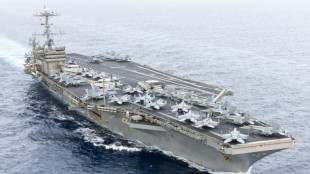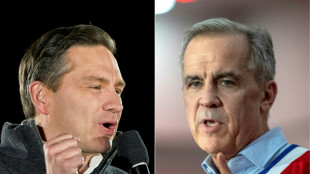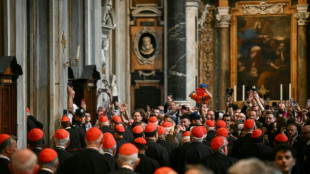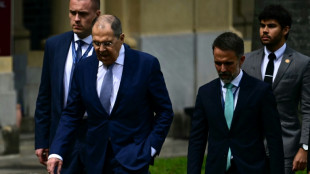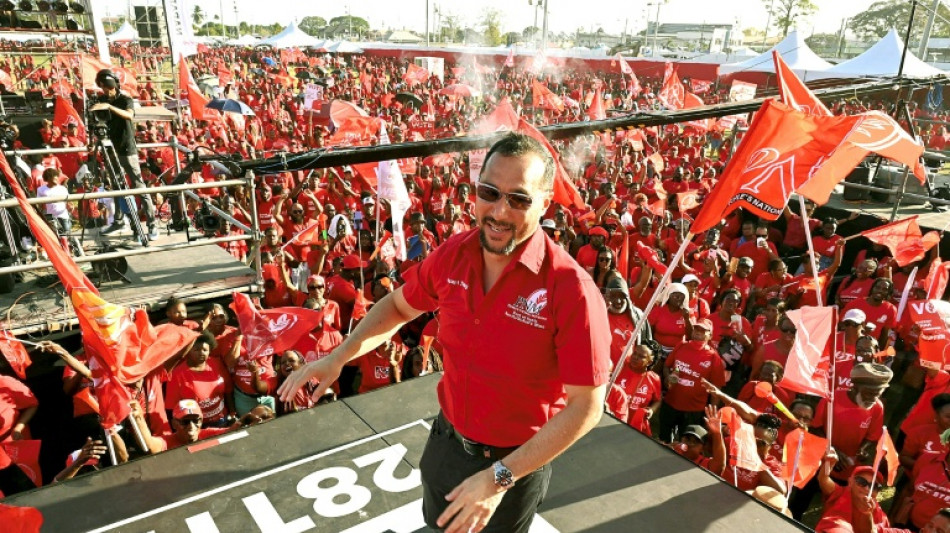

Violence-weary Trinidadians vote in general election
Voters in violence-plagued Trinidad and Tobago went to the polls on Monday in elections that will decide whether Prime Minister Stuart Young remains in power.
Former energy minister Young, 50, took over as prime minister of the Caribbean nation in March when party colleague Keith Rowley stepped down after 10 years in the job to make way for new blood.
Young's center-left People's National Movement (PNM) has been lagging in polls behind the centrist United National Congress (UNC) of former prime minister Kamla Persad-Bissessar, 73.
Persad-Bissessar has campaigned on promises of higher public wages to offset an economic downturn.
Young has accused her of peddling false hopes, saying there was "no way that a government, any government, could afford" the additional $2-billion bill he said her program would entail.
"Everything was pretty smooth," Karen John told AFP after she voted in Valsayn, in northern Trinidad, the larger of the two islands that make up the archipelago off the coast of Venezuela.
Voters are electing the 41 members of the House of Representatives, parliament's lower house.
The party that emerges with a majority of seats will form a new government, with its leader as prime minister.
If no party wins a majority, a coalition government is likely in the English-speaking nation of 1.4 million people, famous for its carnival and sandy beaches.
The election is taking place against the backdrop of a severe security crisis.
A total of 623 murders were recorded last year, up from 577 in 2023, many of them linked to Latin America-based criminal gangs, including Venezuela's infamous Tren de Aragua, which the United States has designated a "terrorist" group.
According to a US Department of State report from March, the murder rate of 37 per 100,000 people made Trinidad and Tobago the sixth most dangerous nation in the world last year.
The report noted that the country's southern border, which is around 10 miles from the Venezuelan coast, was "vulnerable to illegal migration, drug trafficking, and human trafficking and smuggling."
To try and restore order, the government imposed a state of emergency between December and mid-April.
The Caribbean's second-largest producer of natural gas, Trinidad and Tobago has also been battling an economic downturn blamed partly on a decline in production.
It had been banking on exploitation of the Dragon gas field in nearby Venezuelan waters, but has seen its licence withdrawn by the administration of US President Donald Trump under renewed sanctions against that country.
G.Hubert--PP



